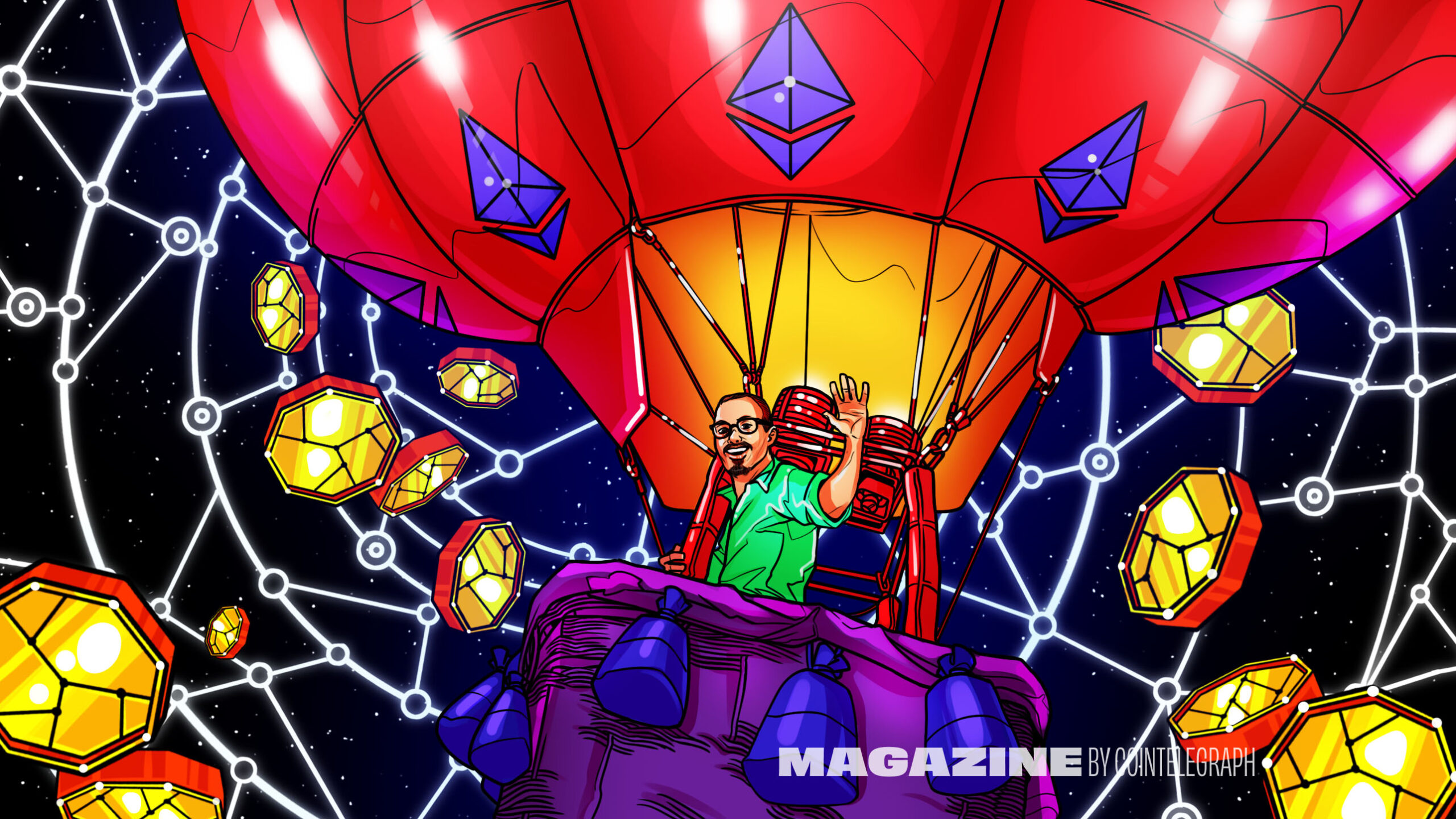Steve Newcomb is a Silicon Valley veteran with a long list of achievements. He built software for trading energy in the 90s, was a pione
Steve Newcomb is a Silicon Valley veteran with a long list of achievements. He built software for trading energy in the 90s, was a pioneer in adding email to phones, and helped create the back end of the Bing search engine under Peter Thiel’s mentorship. Today, he heads up development for Berlin-based Matter Labs, which is building scaling solutions for Ethereum.
“I was very much a skeptic” when it came to cryptocurrency and blockchain, explains Newcomb, zkSync’s chief product officer. He adds that it took two years of study before he understood the topic and the benefits to his satisfaction.
Calculating that Ethereum had a 65% market share of the layer-1 market, Newcomb was convinced that it held the greatest promise in becoming the de facto “world computer.” But he describes blockchain as being slow and cumbersome today as the internet was 25 years ago, so he set to work scaling it up to one day to become as fast as Web2 is now.

Layer 2s to the rescue
As a veteran of the dot-com era, Newcomb sees the current state of the blockchain environment — not just Ethereum — as similar to that of the internet in 1995, when the World Wide Web’s 25,000 websites could be accessed by average dial-up speeds of less than 30 kilobits per second.
“It’s slow as molasses. Our very well-known ‘Ethereum internet computer’ that claims to have the power to change the world runs at a grand total of 15 transactions per second, and we have 4,000 legitimate projects on Ethereum — very, very similar to 1995.”
Just 10 years later in 2005, websites numbered over 100 million, and speeds had increased at least thirtyfold. “We had SSL, we had HTTPS by then — that little lock icon appeared in our browser. Amazon happened, Google happened,” he lists. Today, in 2022, there are over 1 billion sites, and speeds over 200 megabits are common even on mobile devices far superior to anything Nokia engineers could have even dreamed of 20 years ago.
Just like the advent of SSL and HTTPS, which made the internet secure — allowing for online shopping and the safe transmission of private data — Newcomb is convinced that “the layer 2s that make crypto secure are where 10x moments are happening.”
Also read: Attack of the zkEVMs! Crypto’s 10x moment
He identifies five types of layer-2 solutions: state channels (Raiden Network, Perun), plasma (Plasma Cash, Plasma MVP), sidechains (Skale, Gnosis, Loom), Optimistic Rollups (Arbitrum, Optimism, Boba), and zero-knowledge rollups (Scroll, Matter). Newcomb has some strong opinions to share.

“If you think that the goal of layer 2s is to scale Ethereum while maintaining its decentralization and security, sidechains do not achieve this. They have far less security than Ethereum does, because their functional chain is not on Ethereum’s chain,” he states matter-of-factly.
He feels similarly about state channels and plasma, arguing that “they just literally don’t check the boxes.” This leaves only Optimistic Rollups and zk-Rollups in Newcomb’s good graces. His passion comes across as a rather assertive, perhaps unfair, dismissal of a significant portion of the layer-2 landscape — but let’s save that discussion for a future article.
“My mission is to make sure that Ethereum wins. I want it to be the first that gets it to go from 15 to 1,000 or 10 million transactions per second. I want to be in the room when it happens.”
Serial founder
No stranger to technology, Newcomb has fond memories from the 70s when at 6 years old he would solder motherboards with his father, who “worked for an agency I can’t name.” He describes a desire from an early age to be part of history, which propelled him in his career. In his view, one should find out what they think the most important thing happening is, and then participate in that thing in whatever way they can. Cellphones were the first of these grand phenomena.
“When I set out on my career, I asked myself: Is this something that’s going to affect millions of people? Is it a big deal? Can I add value in some way?”
In 2000, Newcomb founded LoudFire, a company that aimed to build consoles that would control smart homes, which he describes as an abject failure — “except that we realized how to take email from a computer and put it on your Nokia phone,” which was a revolutionary combination of two previously separate technologies. Naturally, the firm was sold to Nokia in 2002, which was the pre-iPhone juggernaut dominating the mobile phone industry at the time.
In 2008, he founded Powerset, a natural language search engine that was essentially sold to become a central component of Microsoft’s Bing. He recalls pitching the project to investor…
cointelegraph.com
